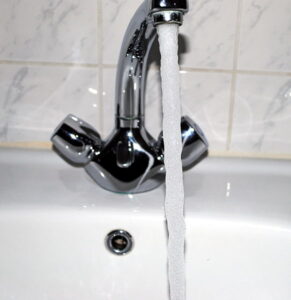Pro TIps
Is Bottled Water Safer Than Tap Water To Drink?
Bottled Water Vs. Tap Water
Bottled water is more of a type of product you buy at your local grocery store than a type of water. More often than not, bottle water is nothing more than spring water. Most people imagine spring water coming from a rushing fountain somewhere near an ice-capped mountain. In actuality, spring water comes from an underground source that may or may not have been filtered and treated. A lot of bottled water comes from municipal water treatment centers, making the bottled water no more than packaged tap water. Furthermore, studies done by the NRDC (Natural Resources Defense Council) found several contaminants in bottled water including coliform, arsenic and phthalates. While these contaminants aren’t incredibly detrimental towards someone’s health, the prevalence of these contaminants shows that bottled water isn’t as pure as it appears.
Is The Plastic From Bottled Water Causing Contamination?
In order to make the plastic soft in water bottles, companies use the chemical phthalates. This chemical is an endocrine disruptor, meaning that it blocks hormones from reaching the brain. A prolonged exposure to this chemical can cause health issues in your reproductive system. Furthermore, if phthalates are ingested by a male fetus during critical development ages, they may have malformed reproductive organs. In the same study done by the NRDC , it found that two bottled water brands that use phthalates in their plastic had above the state or industry standards. To make matters worse, the two companies who had high levels of phthalates in their plastic didn’t adjust their phthalates levels for over a year! Since the FDA considers water a “low risk product”, the FDA doesn’t do annual tests to ensure the bottled water plant is up to the FDA standards. As a result, any health concern relating to water goes unnoticed for quite a while.
Another potential risk with drinking bottled water is the leaking of chemicals from the plastic into the water when stored in high temperatures. When the plastic in bottled water is heated up, the chemical equilibrium is skewed in the plastic, causing the chemicals from the plastic to go into the water quicker. Having said that, there is no known hazards associated with the chemicals in the plastic (other than the chemical phthalates discussed above). Most of the chemicals that seep into the water are unknown. We don’t know much of anything about their characteristics or health effects. So while we say that the chemicals are “harmless” now, that verdict could easily change.
In summary, bottled water isn’t as pure and clean as most people believe it is. Bottled water contains as much (if not more) contaminants than tap water. The fact that bottled water is packaged in plastic adds a separate risk of ingesting contaminants from your drinking water. At the end of the day, the only real advantage bottled water offers is convenience. The fact that bottled water is prepackaged makes it easily transportable and ideal for people on the go. This factor alone means that bottled water will forever be a part of our society and be a very profitable product.

